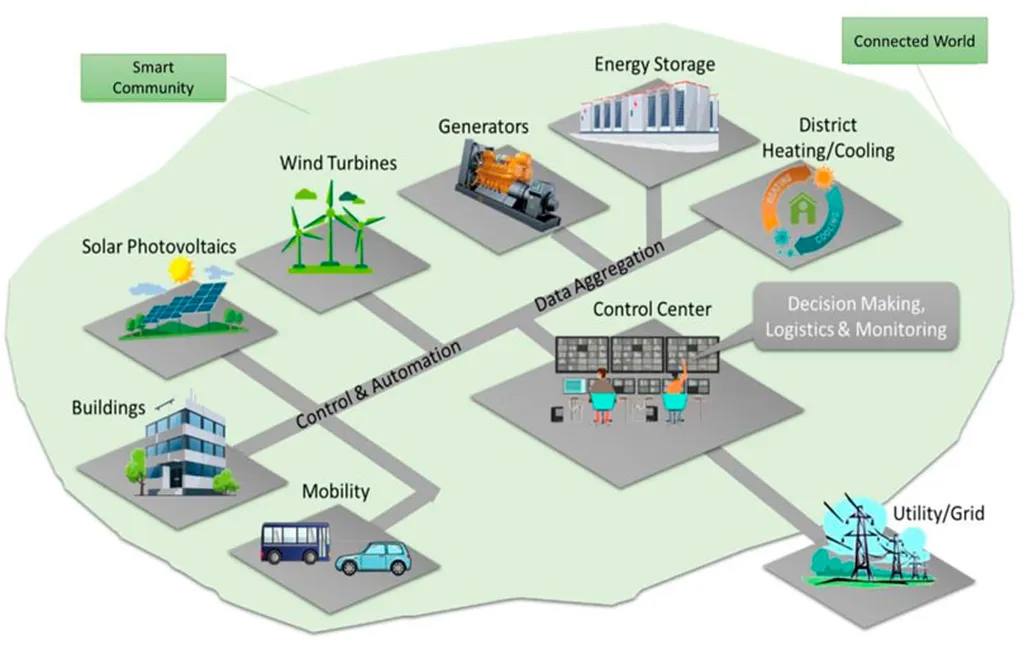In a groundbreaking development for the energy sector, researchers have introduced a novel framework designed to evaluate the performance of energy communities (ECs) in a comprehensive and multidimensional way. The Integrated Energy Community Performance Index (IECPI), developed by Georgios D. Lamprousis of the University of Aegean, offers a structured approach to assessing ECs across environmental, technological, social, and economic/institutional dimensions. This tool, published in the journal *Urban Science*, promises to revolutionize how energy communities are benchmarked, strategically planned, and monitored over time.
Energy communities, which bring together local actors to generate, share, and manage renewable energy, are increasingly seen as key players in the decentralized energy transition. However, the lack of a standardized evaluation framework has made it challenging to compare their performance, develop targeted policies, and track long-term progress. The IECPI addresses this critical gap by integrating both objective and subjective metrics, capturing everything from measurable outcomes to governance structures and contextual factors.
The IECPI is built on nine normalized indicators, each weighted based on empirical data from 60 documented case studies. This approach allows for a nuanced understanding of how different factors interdependently influence the performance of energy communities. “The IECPI is not just about measuring performance; it’s about understanding the complex interplay of factors that contribute to success or failure,” explains Lamprousis, lead author of the study and a researcher at the Department of Financial and Management Engineering, School of Engineering, University of Aegean.
One of the most compelling aspects of the IECPI is its ability to categorize energy communities into five strategic typologies: Technologically Driven, Environmentally Oriented, Socially Embedded, Balanced Performance, and Structurally Fragile. This classification system enables policymakers, investors, and community leaders to identify strengths and weaknesses, facilitating targeted interventions and strategic planning.
The implications for the energy sector are significant. By providing a robust, scalable, and transferable model, the IECPI can help energy companies, governments, and community organizations make more informed decisions. It aligns with international frameworks such as SDG 7 (Affordable and Clean Energy), the Eco-Management and Audit Scheme (EMAS), and principles of inclusive governance, making it a valuable tool for promoting sustainability and energy justice.
For commercial stakeholders, the IECPI offers a way to benchmark performance and identify best practices, ultimately enhancing the viability and impact of energy communities. “This tool can drive innovation and efficiency in the energy sector by highlighting what works and what doesn’t,” says Lamprousis. “It’s a step towards more resilient, sustainable, and equitable energy systems.”
As the energy sector continues to evolve, the IECPI provides a much-needed foundation for evidence-based planning and decision-making. By fostering cross-case learning and targeted policymaking, it has the potential to shape the future of decentralized energy systems, ensuring they are not only technologically advanced but also socially and environmentally sustainable. This research marks a significant milestone in the journey towards a more integrated and resilient energy future.

